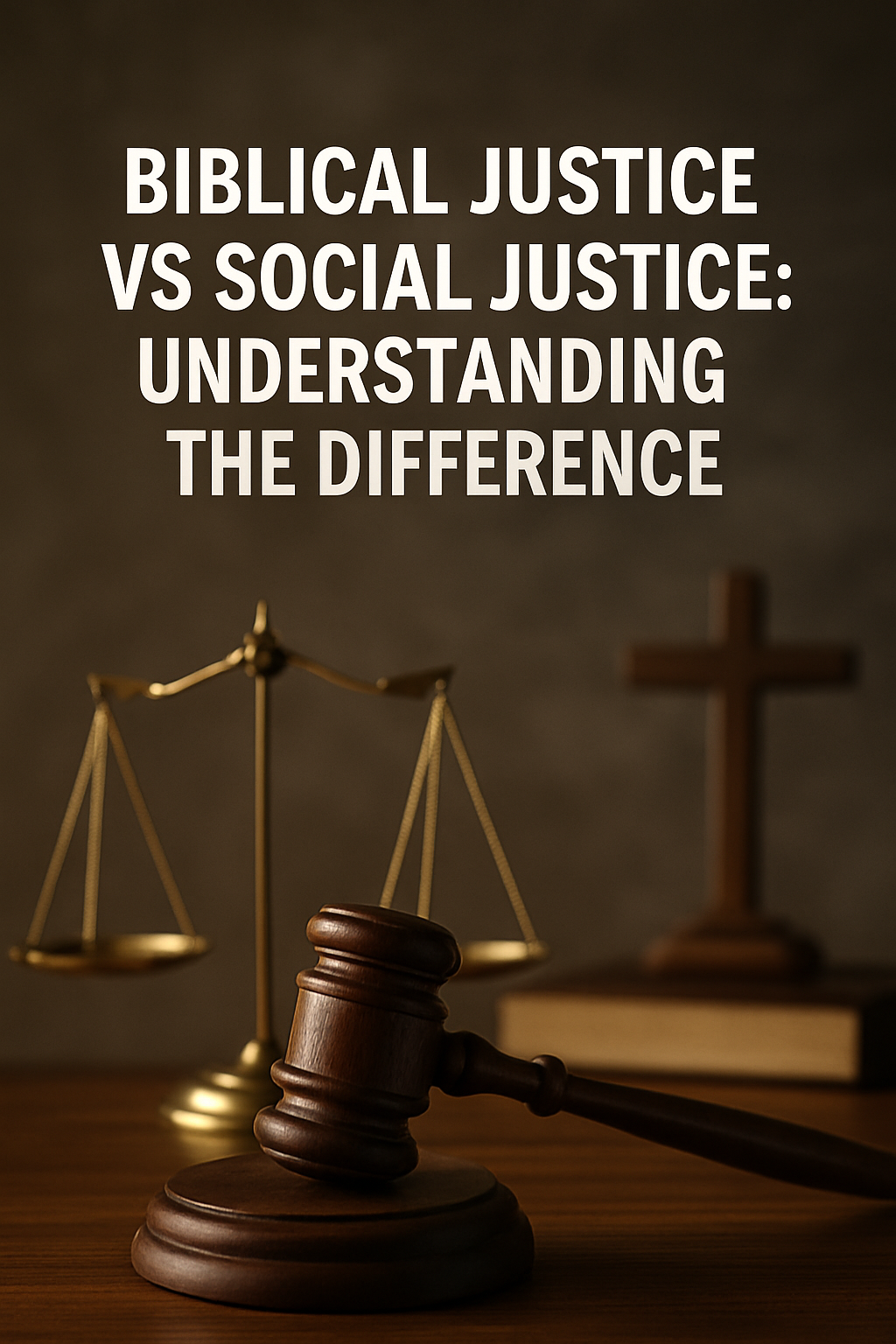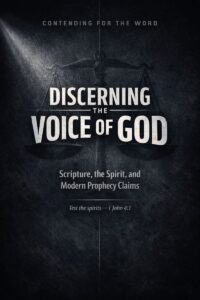⏱️ Estimated Reading Time: 3 min read
Biblical Justice vs Social Justice: Understanding the Difference
Contending for the Word – September 9, 2025
Written by Dave Jenkins
Defining the Terms
In recent years, the term “social justice” has become a cultural buzzword. For some, it refers to fairness, equality, and helping the marginalized. For others, it involves political activism, identity categories, and economic redistribution.
Christians must ask, Is social justice the same as biblical justice?
Social Justice: A Cultural Movement
Modern social justice often flows from secular philosophies like Marxism, Critical Theory, and Postmodernism. These frameworks divide humanity into categories of oppressor and oppressed, elevate group identity over individual responsibility, and often seek redemption through activism or revolution rather than repentance and faith in Christ.
- Identity-based categories, defining people primarily by race, gender, or sexuality.
- Collective guilt, assigning moral weight not to personal sin but to group membership.
- Redefinition of morality, equating justice with equality of outcomes rather than God’s standards of righteousness.
- Man-centered solutions, pursuing change apart from God’s Word or gospel truth.
Biblical Justice: Rooted in God’s Character
By contrast, biblical justice flows from the very nature of God, who is holy, righteous, and just (Deuteronomy 32:4). Justice in Scripture means giving to each person what God requires, punishing evil, upholding truth, protecting the vulnerable, and promoting righteousness according to His revealed will.
- God’s law as the standard (Micah 6:8, Isaiah 1:17).
- Personal responsibility for sin (Ezekiel 18:20).
- Equal dignity of all people as image-bearers (Genesis 1:27).
- The gospel as the ultimate solution for injustice, because Christ bore the penalty of our sin and brings true reconciliation (2 Corinthians 5:18–21).
Why the Difference Matters
Confusing social justice with biblical justice leads to serious errors. Cultural movements create a different standard when human ideologies replace God’s Word. They promote a different view of sin when categories like “oppressor” and “oppressed” overshadow personal accountability before God. They offer a different solution when activism and policy take the place of the gospel of grace, and they direct our hope to temporary fixes rather than the eternal kingdom of Christ.
Christians should care deeply about the poor, the marginalized, and the oppressed, yet our pursuit of justice must flow from Scripture, not secular ideologies.
A Biblical Response
God calls His people to “do justice, love mercy, and walk humbly with your God” (Micah 6:8). This means defending the vulnerable, upholding truth, and pointing to Christ, since only Jesus transforms hearts and brings lasting reconciliation.
- Defend the vulnerable, standing against real oppression and abuse.
- Uphold truth, refusing to compromise God’s Word for cultural approval.
- Point to Christ, showing that reconciliation with God in Christ is the foundation for reconciliation with others.
The church’s mission is not to adopt worldly movements, but to preach Christ crucified and to model His justice, mercy, and love in our communities.
Conclusion
Social justice and biblical justice are not the same. The world offers shifting definitions rooted in human philosophy, while the Bible offers a fixed, eternal standard grounded in the righteous character of God. True justice is found in Christ, who satisfied God’s justice at the cross, and now calls His people to live justly by walking in His Word.
“Righteousness and justice are the foundation of your throne, steadfast love and faithfulness go before you” (Psalm 89:14).
For more please visit Contending for the Word Q&A at Servants of Grace or our YouTube.
Dave Jenkins is happily married to his wife, Sarah. He is a writer, editor, and speaker living in beautiful Southern Oregon. Dave is a lover of Christ, His people, the Church, and sound theology. He serves as the Executive Director of Servants of Grace Ministries, the Executive Editor of Theology for Life Magazine, the Host and Producer of Equipping You in Grace Podcast, and is a contributor to and producer of Contending for the Word. He is the author of The Word Explored: The Problem of Biblical Illiteracy and What To Do About It (House to House, 2021), The Word Matters: Defending Biblical Authority Against the Spirit of the Age (G3 Press, 2022), and Contentment: The Journey of a Lifetime (Theology for Life, 2024). You can find him on Facebook, Twitter, Instagram, Youtube, or read his newsletter. Dave loves to spend time with his wife, going to movies, eating at a nice restaurant, or going out for a round of golf with a good friend. He is also a voracious reader, in particular of Reformed theology, and the Puritans. You will often find him when he’s not busy with ministry reading a pile of the latest books from a wide variety of Christian publishers. Dave received his M.A.R. and M.Div through Liberty Baptist Theological Seminary.




